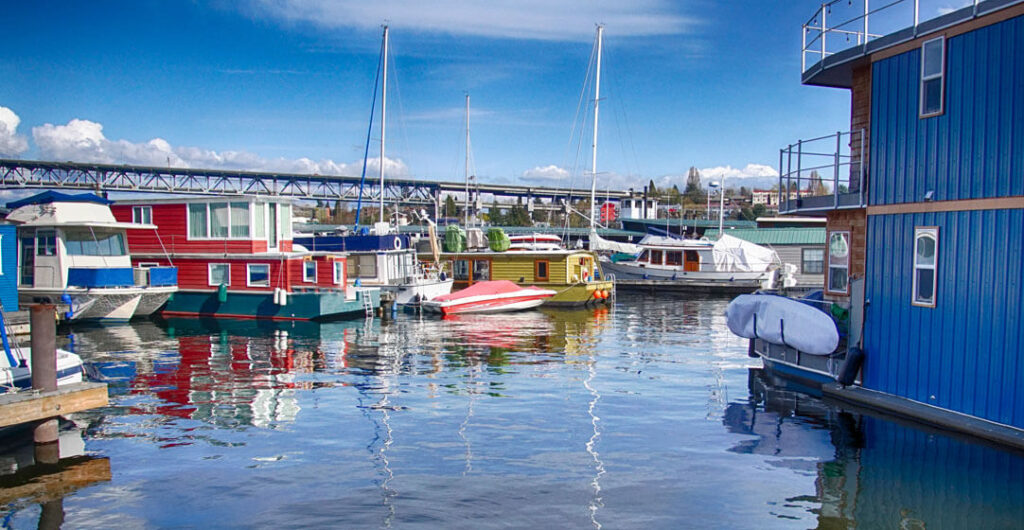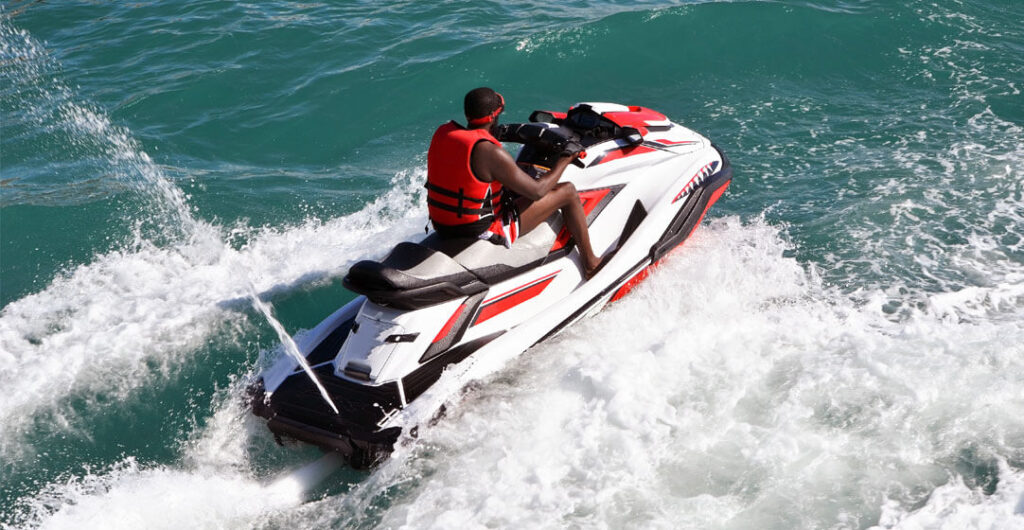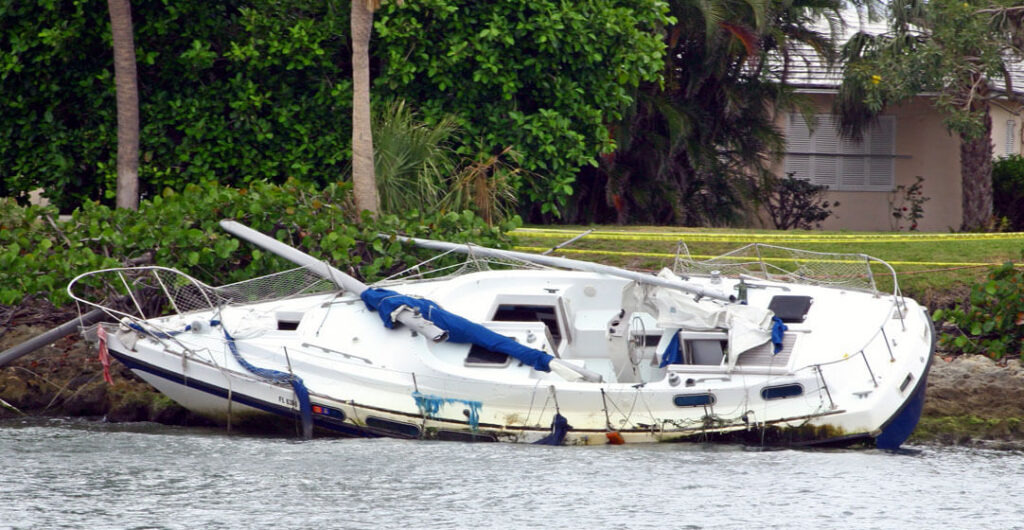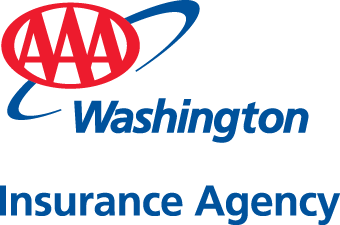Don’t go into the water … without boat insurance
Longer days, sunnier weather, ah yes, it’s time to get that tarp off the boat. Won’t be long before you’re cruising around the lake with the wind whipping against your hair, an early-morning mist floating off the water. Nothing beats a day out on the water, but don’t go without boat insurance.
While Washington state and Idaho do not require boaters to get boat insurance, you would be wise to do so.
Boats tend to be expensive. They are also costly to repair and replace. Also, while boating is enjoyed every year by millions of people without incident (including on Washington state’s beautiful rivers, lakes and coastline), sometimes accidents do happen — and you want to make sure you have adequate coverage to protect not only your boat and family, but others on the water.

Do you need boat insurance?
Almost all types of boats require insurance, including yachts, large sailboats, jet boats, personal watercraft like jet skis, in other words, any larger or fast-moving boat. You may not need insurance if you own a canoe, or a slow, small and inexpensive boat. However, even small and slow boats can have accidents that injure other parties, which would put the owner at risk of being sued.

What does boat insurance cover?
Boat insurance is a lot like car insurance, with a key difference: Boats vary much more in size, variety and usage than cars. So, it is important to call a AAA insurance agent first to discuss your specific boat.
A standard boat policy, like auto insurance, has three main components that are often sold together: collision, comprehensive and liability.
- “Collision” covers damage caused by boating accidents, such as if you run aground or you hit a rock and it damages the hull. Boat insurance will pay to repair damage to a maximum limit established by the policy up to the total replacement of the boat.
- “Comprehensive” covers damage or loss from events that are out of your control, such as unexpected fires, theft, vandalism and storms.
- “Liability” protects against legal liability if you damage another person’s boat or property or injure others in an accident. This covers you for the damage to other boats and property, or for medical expenses to other people in an accident where you are at fault, etc.
Tip: Even if you don’t use your boat in the fall and winter, it is a good idea to keep the boat insured year-round. If your boat is damaged or stolen at your home or at a marina, you won’t be covered without boat insurance.

Does my homeowners’ policy protect my parked boat?
Typically, no. For small boats, you can add on a small amount of coverage to the homeowners’ policy for the physical damage, normally $1,500 or less. Larger boats need boat insurance to protect against theft, damage and provide liability coverage (say, your boat falls off the trailer and smashes into a car on the way to the lake). Also, most marinas require you to carry insurance as a condition of the rental agreement. Marinas want to make sure they won’t be on the hook for damages if your boat sinks or people are injured on the boat while it is moored at their property.
Should I get boat insurance for personal watercraft such as jet skis?
Yes, you’ll face similar liability risks if you cause an accident in a personal watercraft — or if you lend one to a friend and they cause an accident. Think of a personal watercraft as the equivalent of a motorcycle on water. These are fast, powerful machines that, unfortunately, sometimes crash into rocks and other boats. So, it is important to get insurance prior to taking your personal watercraft out for a spin.

Common add-ons
Boat insurance, though, is highly flexible with a buffet of options. For example, you can buy optional insurance to cover:
- Towing insurance to pay the cost for on-water towing, jump starts and fuel delivery if the boat breaks down
- Salvage/wreckage insurance to cover the cost of removing the boat if it sinks
- Mechanical breakdown coverage to pay for repair or replacement of inboard and outboard motors
- Medical expenses to pay for your passengers’ bills if you’re in an accident or someone is hurt on your boat
- Uninsured/underinsured that will protect you if you are hit by another boater who is uninsured or underinsured
- Fishing equipment and carry on items to pay the full replacement cost of fishing gear and other carry-on property, such as scuba gear, phones, fish finders and other items that are lost or stolen
- Damage/theft of boat trailers
- Fuel spill liability to cover the cost of the cleanup and fines if your boat leaks fuels and damages the environment
These should be considered essential coverage if you’re regularly taking a larger boat over long distances or island hopping off the coast. But if you’re putting in a small boat on the lake only once in a while, you might not need as many add-ons.

What doesn’t boat insurance cover?
Standard boat insurance will not cover mechanical, electrical or structural failures to the boat, or problems associated with rot and neglect. (However, some insurance companies offer add-on insurance that will cover certain mechanical failures to the boat.) Standard boat insurance will typically only pay claims on damage caused by an external event, such as storm or a collision.
Tip: As with car and home insurance, it is important to read the standard policy carefully or go over it with your AAA insurance agent, particularly the section on exclusions. Usually, you can get add-on coverage that will fill those gaps at an affordable price.
Total replacement
Typically, people will buy coverage that matches the replacement value of the boat. But boats, like cars, depreciate in value. So, if you total your boat, you won’t necessarily get the full sale price paid back in an insurance payoff, but rather what the insurance company deems “the actual cash value” at the time of claim. This type of policy accounts for the depreciation. For example, if you buy a boat for $50,000, and you total it five years later, most policies would pay out a lesser amount than the original value, say, $35,000.
Tip: It is possible to purchase boat policies that will pay “an agreed value” should the boat be damaged beyond repair. Under this policy, the insurance company would pay out $50,000 in the prior example, regardless of when the boat was purchased. Agreed-value policies, though, are more expensive than “actual cash value” policies, and usually not available for older boats.

Liability coverage
Just like with car insurance, it is important to get sufficient liability insurance for your boat. Unfortunately, accidents happen on the water. If the accident is your fault and you cause injuries, you could be sued and face a huge, potentially ruinous, court judgment or settlement. Standard policies tend to cap the maximum liability from $100,000 to up to a million; however, it is possible to tie in your boating policy with an umbrella policy that can provide more than a million dollars of liability coverage.
The Cost of Boat Insurance
Boat insurance is relatively affordable (the average cost for AAA Washington-brokered policies is slightly under $500 per year); however, the cost will vary depending on the size, length and value of the boat, the boaters’ experience level and record on the water, and other factors.
Tip: It is possible to get discounts and savings on boat insurance by bundling them with other policies, paying a premium in full, going claims free for a couple of years and taking boater safety classes or achieving certification levels.
Before you buy a boat and sail into the sunset, it’s essential to reach out to an insurance agent and get boat insurance. It is also important to keep that policy active year-round and periodically review your coverage to protect your family and friends on the water. Mark your calendar and call an agent before the beginning of each boating season and discuss your needs.
—Written by AAA Washington staff
—Top photo: lowe stock/AdobeStock

